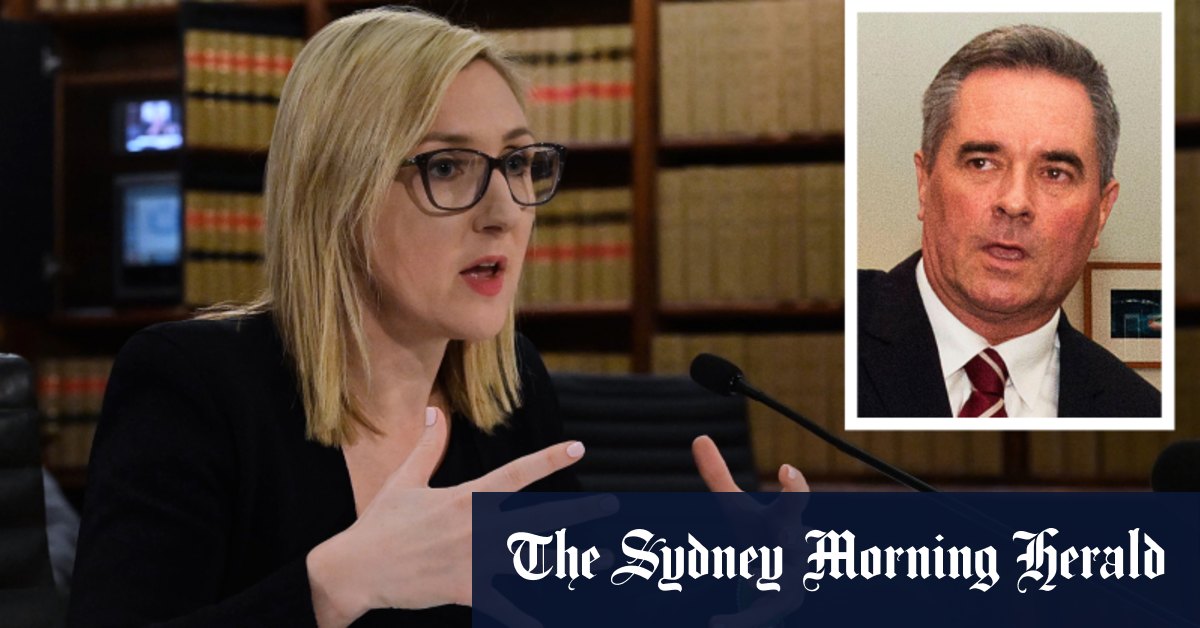While Cartwright walked away from negotiations with a $600,000 package that included expenses – higher than any other trade commissioner – Brown said he had expected $800,000 when his appointment was transferred to her agency from NSW Treasury.
“There seemed to be unmatched expectations between the candidate and what I saw as within my delegation to be able to sign off on,” she told the inquiry during her third appearance.
“I had to deliver some hard messages to the candidate, [that] some of the conversations that had happened previously weren’t going to turn out to be the reality.”
Brown said she did not know where Cartwright’s expectations had come from, since she was not able to pay more than $487,000 under the government sector employment act.
“In my mind, it was a difference in interpretation. [But] rereading the correspondence, I can’t be certain of that,” she said.
Brown said she had conversations with then-premier Gladys Berejiklian and then-treasurer Dominic Perrottet’s offices because she thought a “salary that high for any public service role is ridiculous”.
She said Berejiklian’s office agreed that the figure – which Labor said would have made Cartwright the state’s second-highest paid public servant – was unrealistic.
However, Perrottet’s chief of staff Bran Black told her to consider paying a “private sector size salary”.
“He said, you know, we haven’t had anyone in the country for a long time and let’s make sure we choose someone of high caliber.”
“[It was a] strong opinion,” Brown said. “I got the impression that I should consider the candidate’s requests very seriously.”
In a statement after Brown’s evidence, Black said he made it clear that while the “trade commissioner roles were very important and represented an excellent opportunity for the state”, $800,000 was an excessive salary.
loading
Instead, he said he suggested a base salary of $400,000 and an incentive component of $200,000. “I did not tell Ms Brown to pay Mr Cartwright at private sector levels. I did not tell Ms Brown that she should take her remuneration requests seriously,” Black said. He also did not raise it with Perrottet, who was a treasurer at the time.
Brown said her negotiations with Cartwright felt “threatening” when they continued into October, after Perrottet had become premier.
“It was at that point he was saying that he would talk to [Department of Premier and Cabinet secretary] Michael Coutts-Trotter, or even the minister or the premier,” she said.
“It was actually the name of the premier that jumped out at me… I found it quite threatening.”
Brown told the inquiry that Cartwright sought the intervention of Ayres via WhatsApp in March this year, regarding his concerns about how his pay was structured.
She said it was “highly inappropriate” for him to go above her head as an employer, but that Ayres did not exert any pressure.
“[Ayres] contacted me and said: Look, you can do what you like because Mr Cartwright is your employee, I just want to give you a heads up [that] I’ve got this message,” she said.
“I’m not telling you what to do and I really don’t care about the outcome, basically.”
Brown said she later made “a few passing comments” about the issue to her boss, Coutts-Trotter. “It was more of a whinge,” she said.
the herald sent questions to Cartwright through his employer, Investment NSW. A spokesperson said the agency was unable to comment.
The Morning Edition newsletter is our guide to the day’s most important and interesting stories, analysis and insights. Sign up here.
